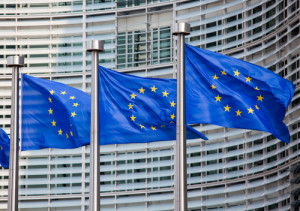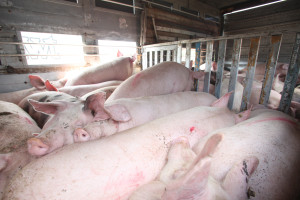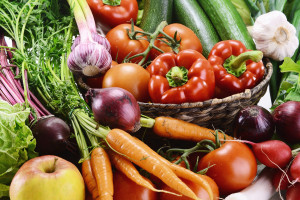Worldlog 25 januari 2016
Nederland is momenteel voorzitter van de Europese Unie. Dierenwelzijn moet de prioriteit zijn tijdens het Nederlandse voorzitterschap! Dit EU-voorzitterschap zou namelijk een perfecte gelegenheid zijn om bijvoorbeeld iets te doen aan de langdurige veetransporten door Europa of de Roemeense zwerfhonden die massaal op brute wijze worden afgemaakt. De PvdD was de enige partij die afgelopen week tijdens een debat in het Europees parlement met premier Mark Rutte aandacht vroeg voor het lot van dieren.
De Nederlandse regering heeft enkele maanden geleden beloofd om dierenwelzijn op de kaart te zetten in Europa tijdens het Nederlandse voorzitterschap. Mijn collega Anja Hazekamp, Europarlementariër voor de Partij voor de Dieren en ik gaan uiteraard goed in de gaten houden of dit ook gebeurt!

Op 6 april wordt in Nederland een referendum gehouden over het geplande associatieverdrag tussen de Europese Unie en Oekraïne. De Partij voor de Dieren is tegen het geplande verdrag.
Op dit moment is er veel controversie rondom dit verdrag. Daarom lijkt het mij een uitstekend idee om burgers naar hun mening te vragen. Maar zowel Oekraïne als de EU blijken het associatieverdrag in de praktijk allang uit voeren, terwijl het nog niet eens geratificeerd is! Hiermee worden de waarden van een democratie weer eens nonchalant weggewuifd. Wat nou als de uitkomst van het Nederlandse referendum straks ‘Nee’ luidt? Hoe kunnen we dan nog terug? Ik heb hier Kamervragen over gesteld aan onze minister-president. Wordt vervolgd.

Uit onderzoek is gebleken dat bontkragen van kinderjassen hoge concentraties van de zeer giftige stoffen formaldehyde en ethoxylaten bevatten. De gemeten concentraties aan formaldehyde en ethoxylaten in de onderzochte bontkragen waren soms zelfs wel 30 keer hoger dan de textielrichtlijn toestaat. Zulke hoge concentraties staan erom bekend kankerverwekkend te kunnen zijn, irritaties te kunnen veroorzaken en de vruchtbaarheid te kunnen schaden. Bont is dus niet alleen een zeer wreed, onnodig modeproduct, maar vormt ook een gevaar voor de consument, met name kinderen. Ik heb de staatssecretaris gevraagd de jassen van de markt te halen en consumenten te waarschuwen voor de gezondheidsrisico’s. Sinds kort zijn bontfokkerijen verboden in Nederland. Laten we dit doorzetten en ook de verkoop van bont aanpakken.
Dan wil ik ook nog graag goed nieuws met jullie delen. Hong Kong heeft aangekondigd de handel in ivoor te willen verbieden én de illegale handel strenger aan te pakken. Dit is fantastisch nieuws voor het behoud van de olifant en een sterk signaal naar de rest van de wereld.

De jaarwisseling is alweer een paar weken geleden, dus het is eigenlijk een beetje laat om nu nog over goede voornemens te beginnen. Maar toch wil ik graag het artikel ‘5 manieren om een klimaat-vriendelijke eter te worden in 2016’ nog even delen. Want minder vlees, meer groente en vaker kiezen voor lokaal en biologisch is niet alleen goed voor je gezondheid, maar ook voor je leefomgeving. Als dat geen win-winsituatie is…
Tot de volgende keer!
Groet, Marianne
The Netherlands is currently President of the European Union. During this presidency, animal welfare should have first priority. After all, this EU Presidency is the perfect opportunity to do something about the long-distance animal transport within Europe or the Rumanian stray dogs being brutally slaughtered on a large scale. Last week during a European Parliament debate with Prime Minister Mark Rutte, the Party for the Animals was the only party to demand attention for the fate of animals.
A few months ago, the Dutch government made a promise to promote the idea of animal welfare in Europe during its presidency. Naturally, my colleague and the Party for the Animals’ MEP Anja Hazekamp and I will closely monitor whether this promise is kept!

On 6 April, a referendum will be held in the Netherlands on the planned association agreement between the European Union and Ukraine. The Party for the Animals is against the agreement.
At present, there is a lot of controversy around this agreement, which is why I believe it would be a good idea to ask citizens for their opinion. However, it appears that both Ukraine and the European Union have long started implementing the association agreement, despite the fact that it has not even been ratified yet! This way, the values of democracy are simply brushed aside once again. What if the outcome of the Dutch referendum will be ‘Against’? Is there still a way back? I have put forward parliamentary questions on this subject to our Prime Minister. To be continued.

Research has shown that the fur collars on children’s coats contain high concentrations of the highly toxic chemicals formaldehyde and ethoxylate. In some cases, the levels of formaldehyde and ethoxylate measured on the examined collars were up to 30 times higher than is permitted by the Textile Regulations. Such high concentrations are known to be extremely carcinogenic, to cause irritation and impair fertility. So fur is not only a very cruel and unnecessary fashion product, it is also a danger to the consumer, particularly to children. I have asked the State Secretary to take these coats off the market and warn consumers of their health risks. Fur farms have recently been prohibited in the Netherlands. Let’s stay the course by now dealing with the sale of fur.
Then there is some good news that I would like to share with you. Hong Kong has announced plans to ban the trade in ivory and impose heavier penalties on illegal trading. This is great news for the conservation of the elephant and it sends a strong message to the world.

It has been several weeks since the turn of the year, so it is a bit late for New Year’s resolutions. Nevertheless I would like to share with you this article entitled ‘5 ways to be a climate-friendly eater in 2016’. After all, eating less meat, more vegetables and more local and organic products not only benefits your health, but also your living environment. If that is not a win-win situation, I don’t know what is!
Until next time!
Kind regards, Marianne